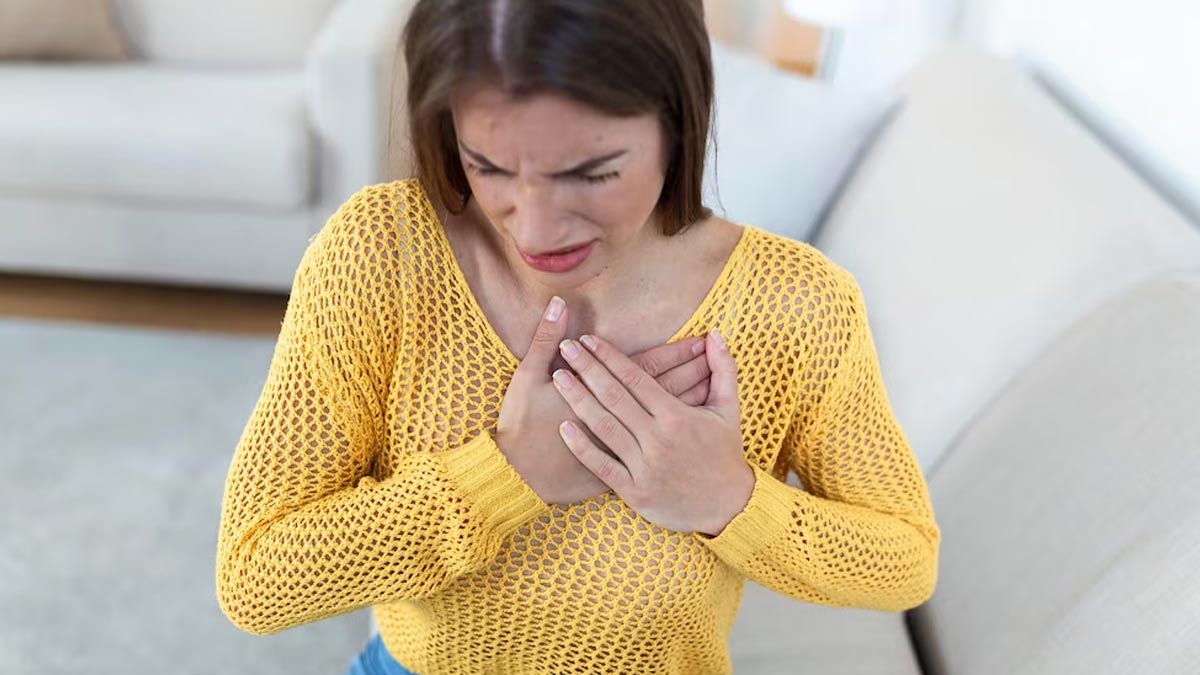
Have you ever experienced sudden sensations of your heart pounding, racing, or fluttering? These heart palpitations can be a concerning and distressing experience, causing irregular or rapid heartbeats. It can happen when you're moving around, sitting, lying down, or standing still. While often harmless, they can also be a sign of an underlying heart condition.
Table of Content:-
We spoke to Dr V Rajasekhar, Senior Consultant Interventional Cardiologist and Electrophysiologist, Certified Specialist for TAVR (Percutaneous Trans Aortic Valve Replacement), Yashoda Hospitals Hyderabad, who explained heart palpitations and how to deal with it.
Why Do Heart Palpitations Occur?

Dr Rajasekhar said, “Heart palpitations are frequently encountered problems among patients visiting our clinic. The palpitation can often be distressing to patients apart from occasionally causing dizzy spells, weakness, and rarely loss of consciousness."
He added that it is caused due to the irregularities of heart rhythm. The most common condition of heart palpitations is called Supra-Ventricular Tachycardia (SVT). Supraventricular Tachycardia is a fast heartbeat caused by a disruption in the heart's regular electrical impulses.
He further said that abnormal electric circuits in the heart occur in some people, which may have existed since birth and appear in adulthood. This causes short-circuiting within the heart, resulting in rapid heartbeat and palpitations.
Also Read: What Are Anxiety-Related Heart Palpitations, Expert Explains
How To Deal With Heart Palpitations?

Dr Rajasekhar said, "If the symptoms are infrequent, an initial trial of medications is offered. However, many patients continue to have recurring symptoms despite medicines. In these patients, we can offer a treatment modality called radiofrequency catheter ablation. During this procedure, small wires or catheters are inserted into the heart through the veins in the groin, and the electrical signals inside the heart are mapped. Once the abnormal circuit is identified it is ablated or burnt using radio frequency energy. This cures more than 95% of patients and they become free of medication for the rest of their lives.”
Dr Rajasekhar said that sometimes palpitations can indicate a more serious condition, especially in patients who had a prior heart attack. This may portend a risk of future cardiac arrest. He further said that in such patients they recommend a device called an automatic Implantable Cardioverter Defibrillator (ICD). It is a small battery-powered device that is implanted in the chest to detect and treat abnormal heartbeats (arrhythmias).
He also said that palpitations may be caused by various systemic conditions, such as thyroid disease, low haemoglobin producing anaemia in few people. In all patients with palpitations, these conditions are looked for and ruled out.
Also Read: Can Irregular Periods Give Rise To Heart Diseases? Expert Explains The Connection
Other Ways To Manage Heart Palpitations
Identify And Avoid Triggers
Common triggers include caffeine, alcohol, nicotine, stress, anxiety, certain medications, and strenuous physical activities. By recognising these triggers, you can make lifestyle modifications to avoid or minimise exposure to them.

Practise Stress Reduction Techniques
Stress and anxiety can contribute to heart palpitations. Therefore, engaging in activities, such as deep breathing exercises, yoga, meditation, or mindfulness can help calm the mind and reduce the frequency and intensity of palpitations.
Stay Hydrated and Limit Stimulants
Dehydration can exacerbate heart palpitations. Ensure you consume an adequate amount of water throughout the day to maintain proper hydration. Also, limit or avoid stimulants like caffeine, as they can increase heart rate and trigger palpitations. Opt for decaffeinated beverages or herbal teas as healthier alternatives.
Maintain a Healthy Lifestyle
You should engage in regular physical exercise to improve cardiovascular health and enhance overall well-being. Also, follow a balanced diet rich in fruits, vegetables, whole grains, and lean proteins. Avoid excessive intake of processed foods, high-sodium meals, and sugary snacks.
Disclaimer
The information provided in this article is by a registered medical practitioner. However, if you experience persistent or severe heart palpitations, it is essential to seek medical advice from your healthcare expert. The expert will recommend treatment measures as per your medical history.
Also watch this video
How we keep this article up to date:
We work with experts and keep a close eye on the latest in health and wellness. Whenever there is a new research or helpful information, we update our articles with accurate and useful advice.
Current Version
